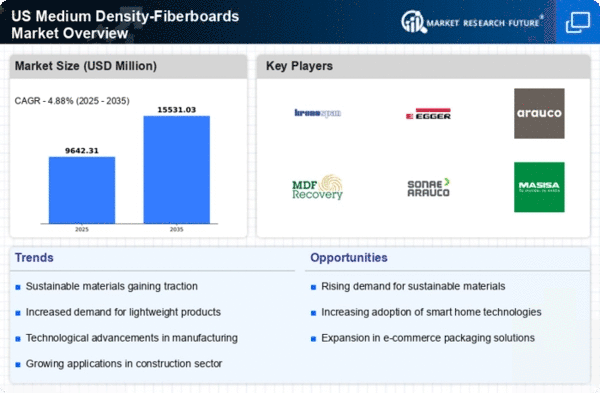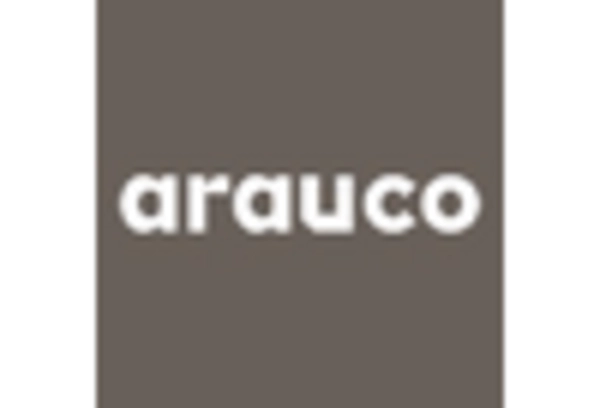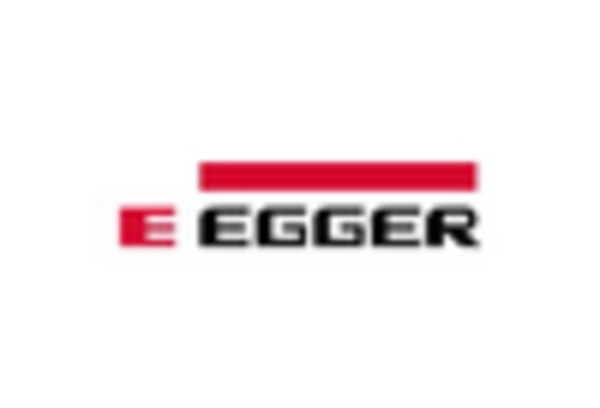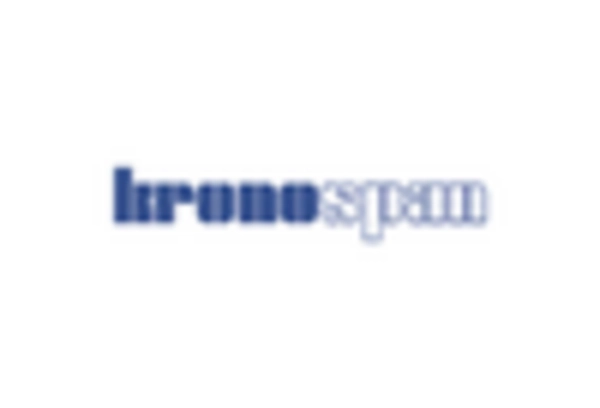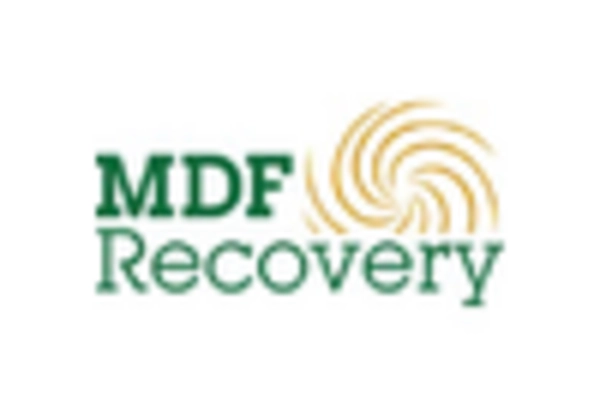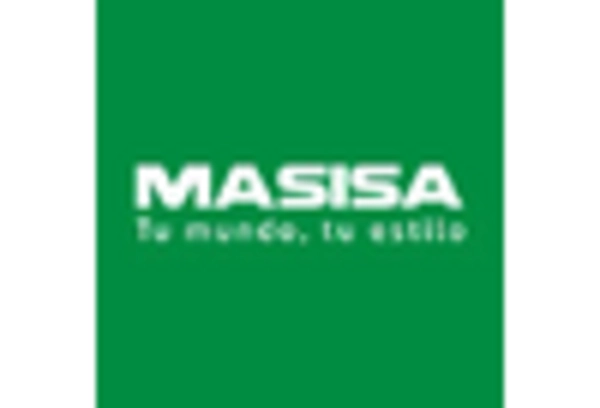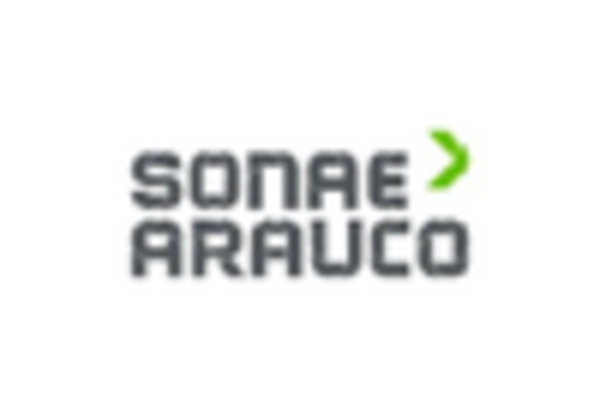Growth in the Construction Sector
The robust expansion of the construction sector in the US significantly influences the medium density-fiberboards market. With a projected growth rate of 4.5% annually, the construction industry is a primary consumer of medium density-fiberboards, utilized in applications ranging from furniture to cabinetry. This growth is driven by urbanization, population growth, and a resurgence in residential and commercial building projects. As developers seek cost-effective and versatile materials, medium density-fiberboards emerge as a preferred choice due to their durability and ease of use. The increasing number of housing starts, estimated to reach 1.5 million units by 2026, further underscores the potential for market expansion, as medium density-fiberboards are integral to modern construction practices.
Rising Demand for Eco-Friendly Materials
The increasing consumer preference for sustainable and eco-friendly materials is a pivotal driver in the medium density-fiberboards market. As environmental awareness grows, manufacturers are compelled to adopt sustainable practices, leading to a surge in demand for products that minimize ecological impact. In the US, the market for eco-friendly building materials is projected to reach $150 billion by 2026, with medium density-fiberboards playing a crucial role. This shift not only aligns with consumer values but also encourages innovation in production processes, enhancing the appeal of medium density-fiberboards. Furthermore, regulatory frameworks promoting sustainable construction practices are likely to bolster market growth, as builders and architects increasingly opt for materials that meet stringent environmental standards.
Technological Innovations in Manufacturing
Technological advancements in the manufacturing processes of medium density-fiberboards are reshaping the market landscape. Innovations such as improved adhesive formulations and enhanced production techniques are leading to higher quality products with better performance characteristics. These advancements not only increase the efficiency of production but also reduce waste, aligning with sustainability goals. The introduction of smart manufacturing technologies, including automation and data analytics, is expected to enhance operational efficiency, potentially reducing production costs by up to 20%. As manufacturers adopt these technologies, the medium density-fiberboards market is likely to witness a transformation, offering products that meet evolving consumer demands for quality and sustainability.
Increased Use in Furniture and Interior Design
The medium density-fiberboards market is experiencing a surge in demand due to its widespread application in furniture and interior design. As consumer preferences shift towards modern and customizable furniture solutions, medium density-fiberboards are favored for their versatility and aesthetic appeal. The furniture industry in the US is projected to grow at a CAGR of 5% through 2027, with medium density-fiberboards being a key material in this growth. Their ability to be easily shaped and finished allows designers to create innovative products that cater to diverse consumer tastes. This trend not only drives sales in the medium density-fiberboards market but also encourages manufacturers to explore new design possibilities, further enhancing market dynamics.
Regulatory Support for Sustainable Building Practices
Regulatory frameworks in the US increasingly support sustainable building practices, which significantly impacts the medium density-fiberboards market. Government initiatives aimed at reducing carbon footprints and promoting energy-efficient construction are encouraging the adoption of eco-friendly materials. Policies such as the Energy Policy Act and various state-level incentives are likely to drive demand for medium density-fiberboards, as they are recognized for their lower environmental impact compared to traditional materials. This regulatory support not only fosters a favorable market environment but also incentivizes manufacturers to innovate and improve the sustainability of their products. As a result, the medium density-fiberboards market is positioned to benefit from these evolving regulations, aligning with broader trends in sustainable development.


